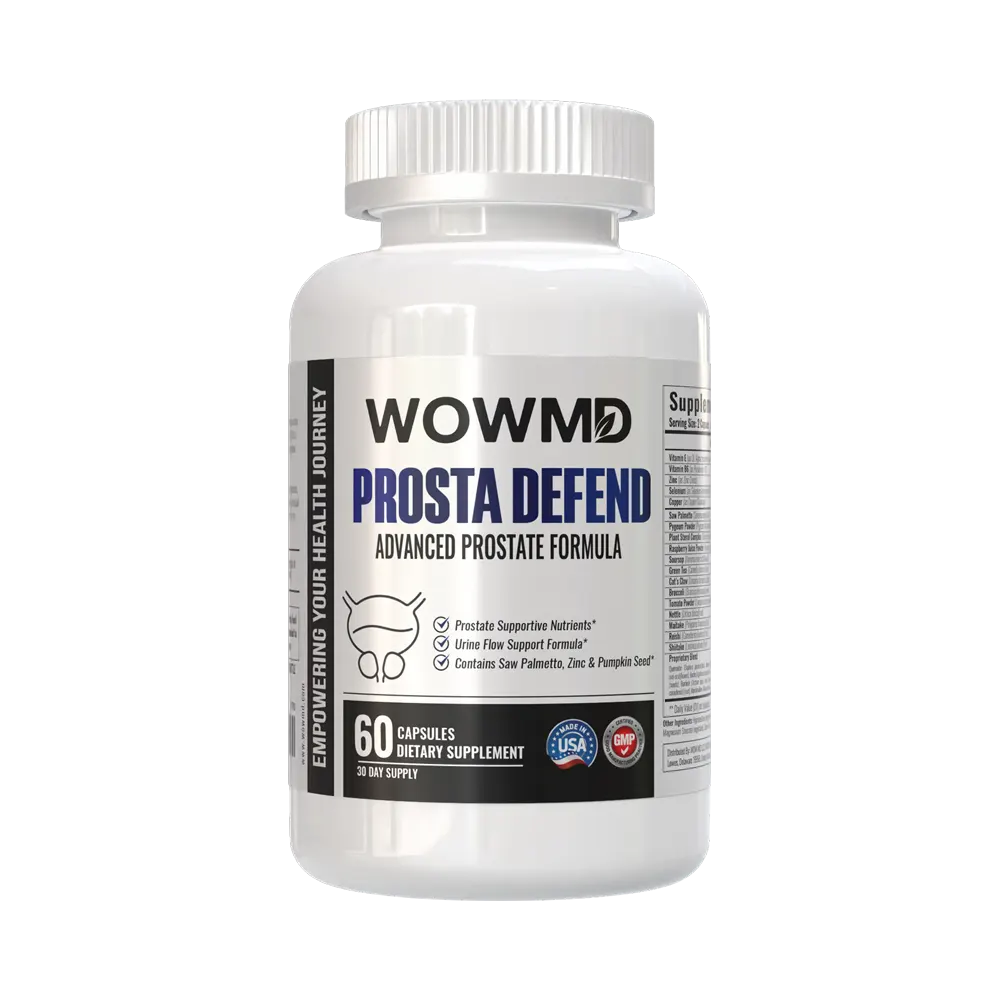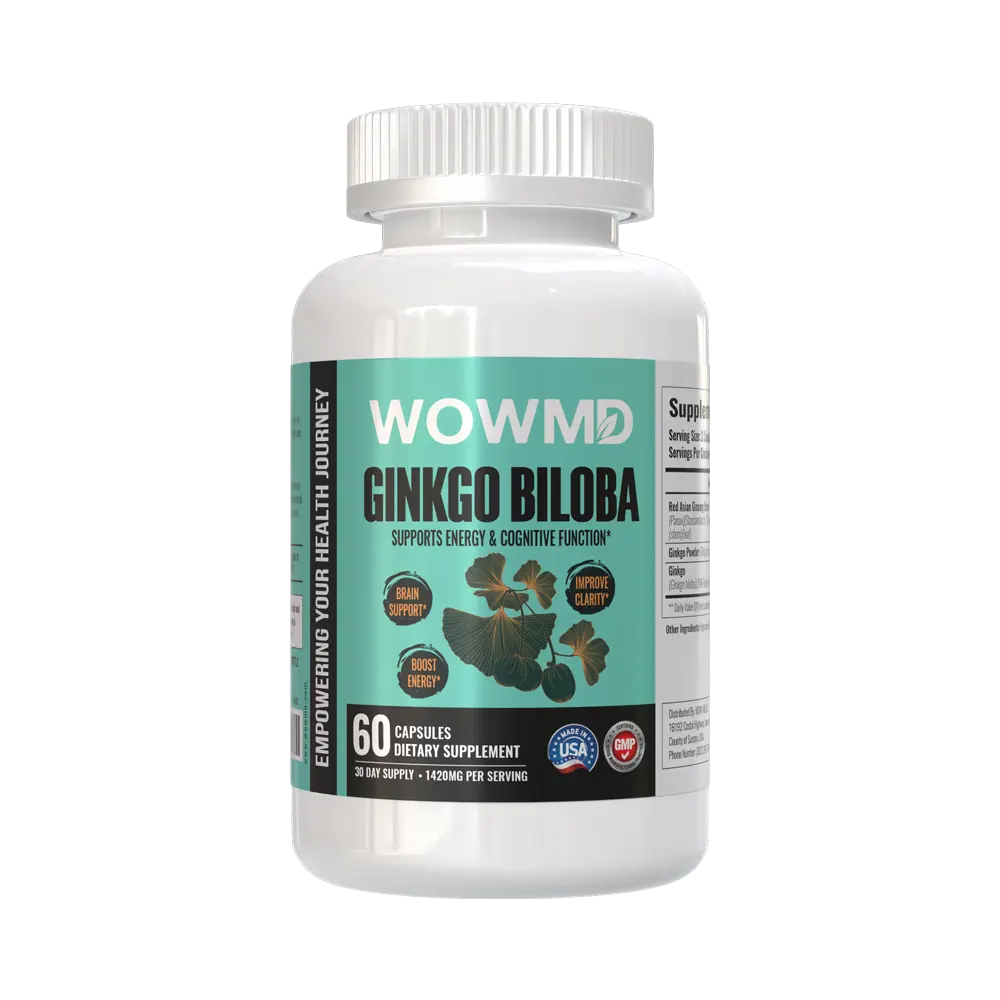Can You Take Prebiotics and Probiotics Together?
Should you take prebiotics and probiotics together? Explore the science behind microbiome therapy and its potential benefits.

Gut health has been a hot topic lately, and that's totally understandable. A healthy gut does wonders for the body, from the digestive system and mental health to your immune system and skin.
However, discussing what happens in our gut also means discussing what goes into it, like food, drugs and dietary supplements such as prebiotics and probiotics. In the same way we think about different food combinations, it’s also natural to ask, “Can you take prebiotics and probiotics together?”
Continue reading as this article helps you understand prebiotics and probiotics, how to use them effectively, the potential side effects of using them, and how they can work well together.
Key Takeaways
- Prebiotics feed the good bacteria (probiotics), enhancing their effectiveness in promoting gut health.
- Synbiotic use (prebiotics + probiotics) can improve nutrient absorption, strengthen the immune system, and alleviate digestive issues.
- Combining prebiotics and probiotics is generally safe, though some may experience minor side effects like gas and bloating.
- Probiotics are best taken with meals, while prebiotics may be better absorbed on an empty stomach or before bedtime.
- For optimal results, it's crucial to take prebiotics and probiotics consistently as directed.
What are Prebiotics and Probiotics?
Prebiotics and probiotics can unite to help your gut flora recover while significantly improving gut health and positioning you for a healthier life. But what are prebiotics and probiotics? Can you take prebiotics and probiotics while pregnant? Let’s find out.
A prebiotic is a dietary fibre, usually derived from plants, that supports your digestive system's good bacteria. Probiotics can lead to a diversified and healthy gut microbial community by competing with pathogenic bacteria that produce endotoxins.
Probiotics are live yeast and bacterial strains. According to Dr March Seabrook of the American Medical Association (AMA), prebiotics are undigestible carbohydrates that are compounds within foods that help good bacteria do even better.
How Prebiotics and Probiotics Work Together
Probiotics and prebiotics complement each other to support balanced gut health in more ways than one. Today, functional foods have been developed to improve the gut microbiome with probiotics and prebiotics supplements, and they are safe to take together as long as they are taken appropriately. Here are other vital things to know about prebiotics and probiotics working together:
- Prebiotics may increase the efficiency of probiotics, so take the best prebiotics and probiotics together.
- Taking a probiotic and enough prebiotics helps you get the most out of your probiotic.
- Using probiotics and prebiotics together, known as synbiotic treatment, can strengthen immunity and stave against infections while keeping a healthy microbiome.
Can You Take Prebiotics And Probiotics Together?
A common question around the use of dietary supplements is, “Can you take prebiotics and probiotics at the same time?” and the simple answer is yes. American Medical Association (AMA) also highlights that maintaining a healthy gut can set patients’ digestive health on the right track. In light of ways to make that happen, March Seabrook, MD, states that "there is also a combination of prebiotics and probiotics—called synbiotics—that are good too.
But the prebiotics help the good bacteria grow even more.” Generally, the answer to “When should I take prebiotics and probiotics?” depends on your supplement and tolerance. Remember that being constant is the most important thing.
Benefits of Combining Prebiotics and Probiotics
The gut is home to several beneficial and harmful bacteria essential to general health and well-being. Probiotics and prebiotics are supplement types that, when combined, can work together to improve one’s gut health by encouraging the growth of good bacteria. In light of this, here are other health benefits you should know:
- Increased Absorption of Nutrients: Together, prebiotics and probiotics can enhance the body's absorption of vital nutrients such as vitamins, minerals, and amino acids.
- Better Immune System Function: Contribute to a more balanced and varied gut flora, strengthening the immune system.
- Sounder Digestive Health: These supplements can lessen the symptoms of digestive disorders such as bloating, constipation, and diarrhoea.
Read More: Can You Take A Probiotic With A Multivitamin
How to Take Prebiotics and Probiotics Together
First, it’s best to take probiotics with a meal and cold or room-temperature water. But then, can you take prebiotics and probiotics on empty stomach? The answer is yes. This is because some prebiotics are best absorbed when you take them empty or a few hours before a meal.
Prebiotics can also cause gas and bloating, so you’ll find it more comfortable taking them before bed. With all these, it’s advisable to plan your intake of prebiotics and probiotics for your last meal of the day. Ultimately, the goal is not to miss taking them, and you can achieve this well if you take them at the same mealtime daily.
Potential Side Effects and Considerations
Can you take prebiotics and probiotics everyday? Yes, you can, but these unique supplements have potential side effects and interactions. Here are some you should know:
- Bloating and Gas: Prebiotics may cause an abrupt increase in fibre, resulting in bloating and gas.
- Infections: Very rare, but for those with a weaker immune system, there's a slight risk that the live bacteria in probiotics can cause infections.
- Allergic Reactions: Some probiotic or prebiotic supplements could provoke allergies due to other components.
Conclusion
Combining probiotics and prebiotics can strengthen the immune system, promote mental health, and enhance digestion. Prebiotics and probiotics differ primarily because the former nourishes the good bacteria already in your stomach.
In contrast, the latter are live good bacteria that support the balance of your gut flora. Although fruits, vegetables, and whole grains can provide these nutrients, you can also take probiotics and prebiotics as supplements.
Additionally, remember that moderation is essential. Many of the negative effects of taking probiotics and prebiotics combined are related to who should not take prebiotics and probiotics or swallowing too much at once. Take it slow at first and observe how your body responds. Following the plan and paying attention to your body will help you use them well without any trouble.
About WOWMD Staff
The WOWMD Staff category features a diverse team of writers, each bringing specialized knowledge in areas such as nutrition, fitness, wellness, and more. Articles in this category benefit from insights provided by multiple experts. All content is peer-reviewed and regularly updated to ensure compliance with our editorial standards.
References
- What doctors wish patients knew about improving gut healthhttps://www.ama-assn.org/delivering-care/public-health/what-doctors-wish-patients-knew-about-improving-gut-health
- The promotion mechanism of prebiotics for probiotics: A reviewhttps://pmc.ncbi.nlm.nih.gov/articles/PMC9581195/
- Can prebiotics and probiotics improve therapeutic outcomes for undernourished individuals?https://pmc.ncbi.nlm.nih.gov/articles/PMC4049942/
- Impacts of Gut Bacteria on Human Health and Diseaseshttps://pmc.ncbi.nlm.nih.gov/articles/PMC4425030/
- Effects of High-Fiber Diets and Macronutrient Substitution on Bloating: Findings From the OmniHeart Trialhttps://pmc.ncbi.nlm.nih.gov/articles/PMC7056053/
- Advances in the Study of Probiotics for Immunomodulation and Intervention in Food Allergyhttps://pmc.ncbi.nlm.nih.gov/articles/PMC9919562/
Evidence Based Research
This WOWMD content has been reviewed, as well as checked for facts, so as to guarantee the best possible accuracy.
We follow a strict editorial policy, especially related to the sources we use. Our articles are resourced from reputable online pages, with research drawn from academic institutions and peer-reviewed studies. You can click on the numbers in the parentheses (1, 2, etc.) and check out those references.
The feedback form on this page can be used to report content that is not accurate, up-to-date or questionable in any manner.
We do NOT intend for the information presented through our articles to replace the medical relationship with a qualified physician, nor does it represent specialized advice.
 Skin Detoxification Bundle
Skin Detoxification Bundle Complete Weight Loss Bundle
Complete Weight Loss Bundle Heart Care Bundle
Heart Care Bundle Better Immunity Bundle
Better Immunity Bundle  Men's Immunity & Prostate Health Bundle
Men's Immunity & Prostate Health Bundle Stress + Energy + Wellness Combo
Stress + Energy + Wellness Combo  Energy Booster Combo
Energy Booster Combo Natural Skin Care Bundle
Natural Skin Care Bundle Workout Supplements Combo
Workout Supplements Combo Cognitive Health & Vision Combo
Cognitive Health & Vision Combo Joint Health Support Combo
Joint Health Support Combo

















 By WOWMD Staff
By WOWMD Staff